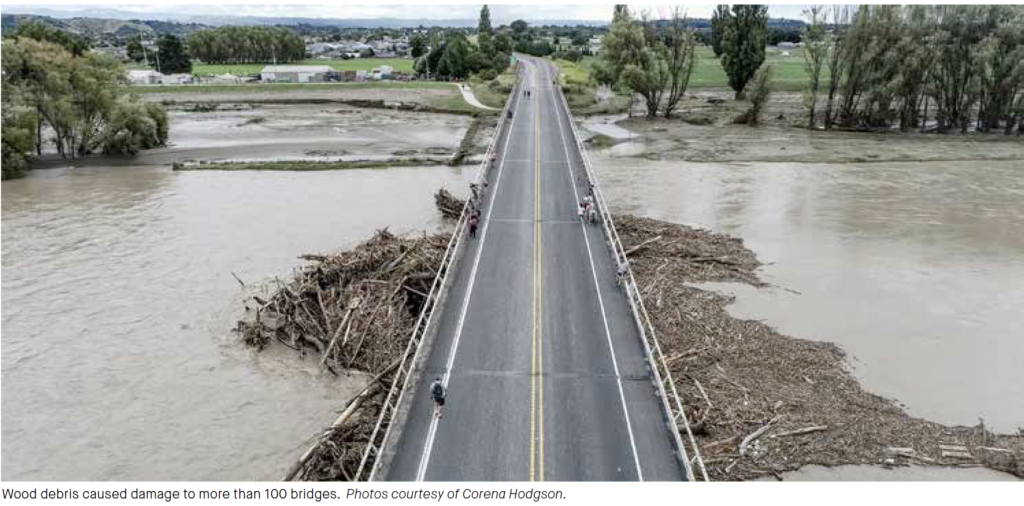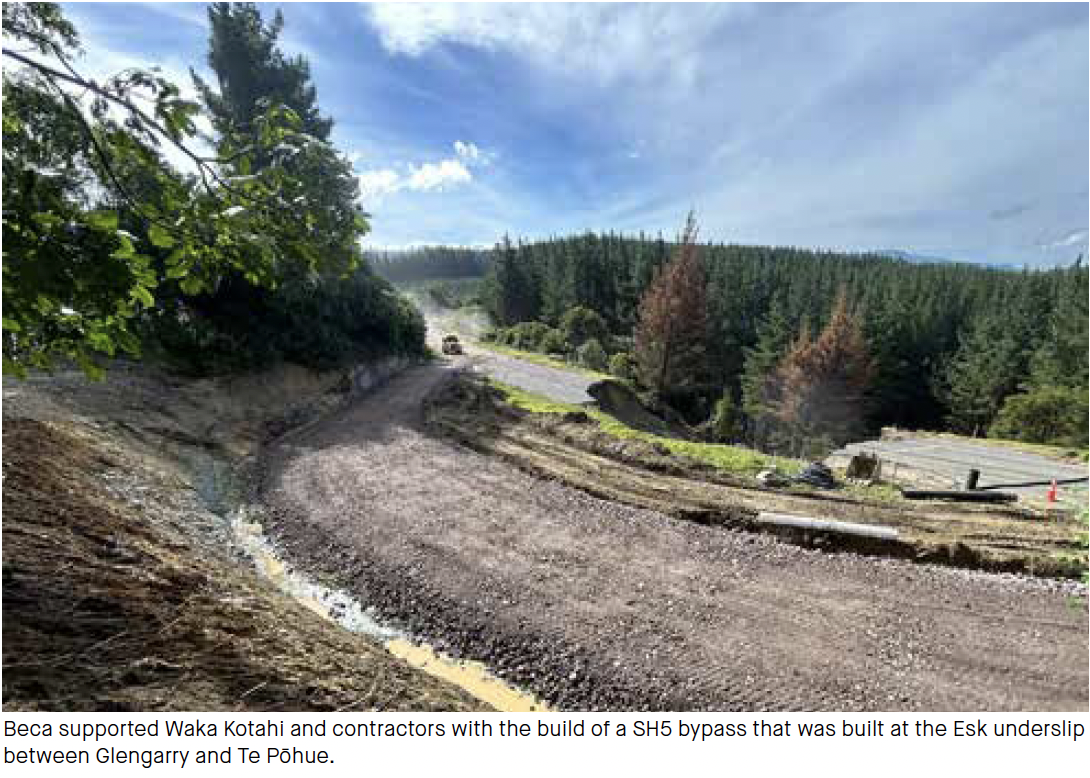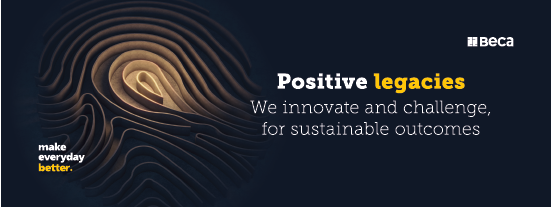When Matt Sanders returned home to Hastings in 2021 to lead global consultancy firm Beca’s Hawke’s Bay office, he was excited about the opportunities of being involved in the creation of new places and spaces.
He never expected that just two years later, he and the team would be switching from being involved in projects such as the HB Airport rebuild and 6 Wharf at Napier Port, to being called into a natural disaster response.
“It took a few days to come to terms with what had happened to our rohe, however, the team swung into gear quickly to support our communities.
“Within hours of the event, we had team members supporting the community in Civil Defence offices at Central Hawke’s Bay District Council and Napier City Council as well as supporting Higgins and Waka Kotahi on the State Highway network, the Regional Council on the stopbanks, and were beginning to make contact with clients and partners across the region to understand the impact of the cyclone.
As well as the local Beca team, Matt was able to call upon the wider New Zealand teams.
“Very early on, it became clear how unique and important the role of local government is during a localised emergency such as this.”
He says the initial response phase moved very quickly, as the impact was assessed and workable methods for reconnecting infrastructure to communities were identified. In that early stage, the response focused on restoring some level of service, fast and a cross-industry response was the only practical way to do that. “After an event such as this, connecting essential services and transport networks is vital to communities’ ability to recover.
“The communication void really tested us all and this will be a significant lesson as we build greater resilience.”
Notably one of the big obsevations was the impact on Māori communities with many marae damaged. “This is significant because the marae is the centre of Māori identity and wellbeing and holds communities together, much like a cultural infrastructure.

“My colleague John Blyth (who leads Te Ahi Tūtata, our Māori business team at Beca) says that when a marae is broken or closed, it affects the wairua – the spirit of that community.” Matt says rebuilding or even relocation may be a reality for some of these communities, but it has to be approached with great sensitivity.
“While some hapū may be prepared to relocate (indeed, some will have already explored relocation options), for others, the consideration of moving off or changing the relationship to whenua is deeply traumatic and takes considerable time.” Cyclone Gabrielle has forced us to focus on risk and resilience, and has started inevitable conversations about how, where and if we build in areas susceptible to hazard.
A question raised by Amelia Linzey, Beca’s Group Director – Advisory and sustainability champion, is how we move our conversations away from ‘better’ necessarily meaning more investment and bigger infrastructure, to a situation where better is more about ‘better able to repair’, ‘quicker to re-establish’ or ‘safer for residents to support themselves’ following extreme events.
“It’s a difficult conversation to get our heads around and as Amelia says the key is thinking about what and how we can rebuild in a way that empowers local communities to be better prepared for recovery. She suggests that concepts of ‘retreat’ should not just be about leaving land, but about where and what activities are able to be resilient to disruption.



